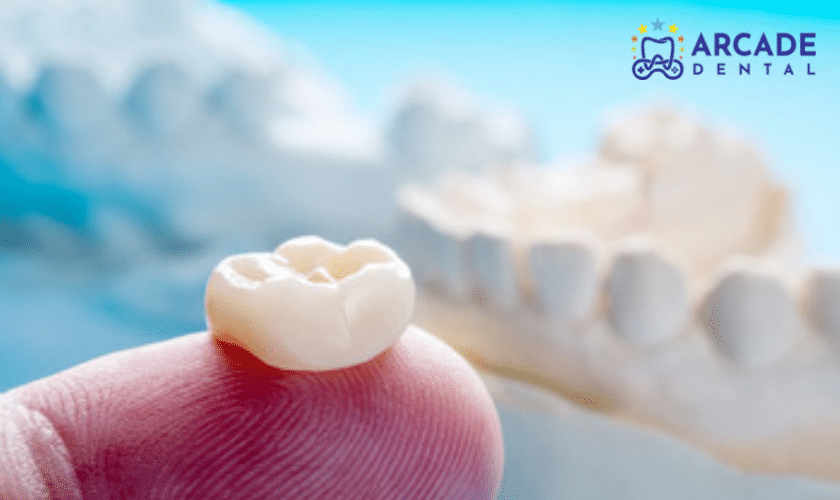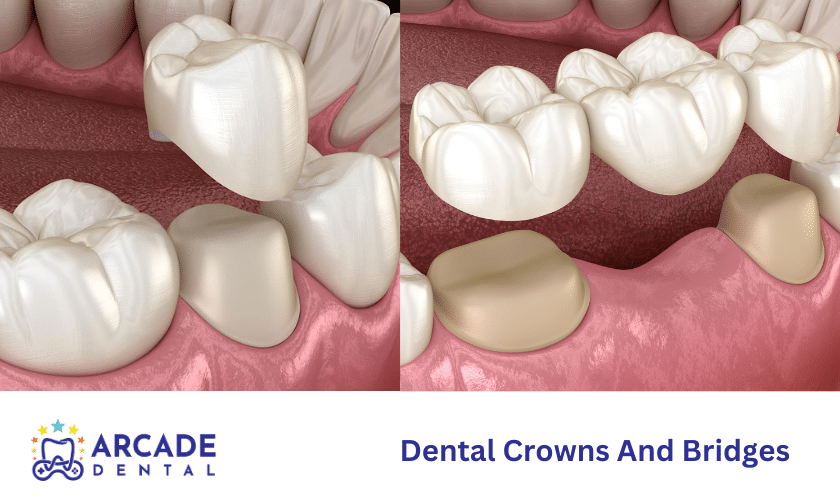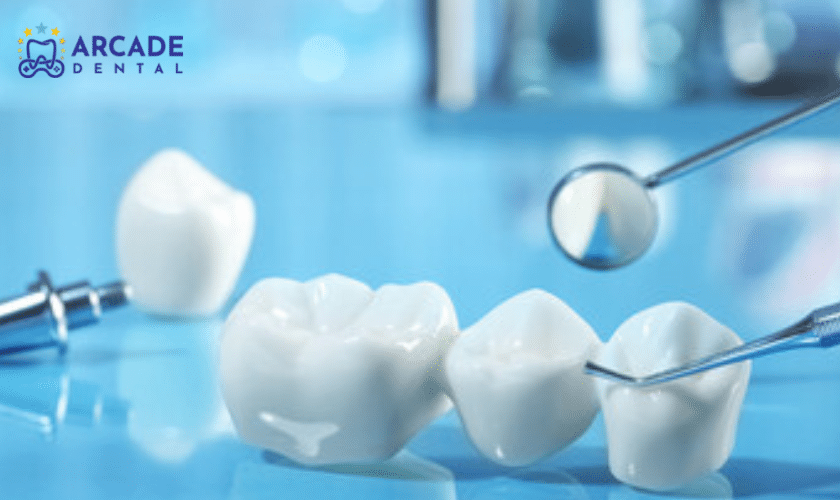
Are you experiencing tooth pain or discomfort while eating? Do your teeth appear discolored or chipped? If so, it may be time to consider dental crowns. These versatile and effective restorations can improve both the function and appearance of your smile. But how do you know if they’re right for you? Here are the top 5 signs that suggest you may need dental crowns – read on to find out!
What are Dental Crowns?
Dental crowns are a common dental procedure. They are also known as caps. Crowns are used to protect a tooth that is damaged or decayed. They are also used to improve the appearance of a tooth.
Crowns can be made from different materials, including porcelain, metal, and resin. Porcelain crowns are the most popular type because they look like natural teeth. Metal crowns are less popular because they can discolor the gum line. Resin crowns are less expensive than porcelain crowns but they do not look as natural.
The procedure for getting a dental crown usually takes two visits to the dentist. During the first visit, the dentist will take an impression of your tooth so that the crown can be made to fit your tooth exactly. The second visit is when the actual crown is placed on your tooth.
Signs That You May Need Dental Crowns
If you have a tooth that is severely decayed or damaged, a dental crown may be recommended by your dentist. A dental crown is a type of dental restoration that covers the entire tooth, restoring it to its original shape and size. Crowns are made from a variety of materials, including porcelain, ceramic, and metal.
There are several signs that you may need dental crown treatment. If you have a tooth that is:
1. Tooth Decay
Tooth decay is one of the most common reasons that people need dental crowns. If you have tooth decay, it means that the enamel on your teeth is breaking down and bacteria are able to get into the inner layers of your teeth. This can lead to pain, sensitivity, and eventually, tooth loss. If you think you may have tooth decay, it’s important to see a dentist as soon as possible so that they can determine whether or not you need a dental crown.
2. Chipped or Broken Tooth
If you have a chipped or broken tooth, it is important to see a dentist as soon as possible. Depending on the severity of the damage, a dental crown may be necessary. Dental crowns are used to restore the function and appearance of damaged teeth.
If you have a chipped tooth, your dentist will assess the damage and determine if a dental crown is necessary. In some cases, a small chip can be repaired with bonding or veneers. However, if the damage is more severe, a dental crown may be required.
If you have a broken tooth, your dentist will also assess the damage and determine if a dental crown is necessary. In some cases, the broken tooth can be repaired with bonding or veneers. However, if the break is severe or the tooth is severely damaged, a dental crown may be required.
3. Discolored Teeth
If you have discolored teeth, it may be time to consider getting dental crowns. Crowns can help to restore the natural color of your teeth and give you a more youthful appearance. There are a few things that can cause your teeth to become discolored over time, such as:
– Drinking coffee, tea, or red wine
– Smoking cigarettes
– Taking certain medications
– Eating certain foods
If you have tried whitening your teeth but haven’t been able to achieve the results you want, dental crowns may be the answer. Crowns are made from porcelain or ceramic and are designed to match the color of your natural teeth. They are placed over the existing tooth structure and can give you a brand new smile.
4. Worn Down Teeth
If you have teeth that are worn down, it may be time to consider dental crowns. When teeth become worn down, they can lose their strength and structure. This can lead to a number of problems, including:
– Increased sensitivity
– Difficulty chewing
– A change in the shape of your smile
If you notice any of these changes in your teeth, it’s important to see a dentist right away. Dental crowns can help to restore the strength and structure of your teeth, and improve your overall oral health.
5. Weak or Damaged Fillings
If you have a filling that is cracked, chipped, or otherwise damaged, it may need to be replaced. In some cases, a damaged filling can cause pain or sensitivity. If you have a damaged filling, it’s important to see your dentist as soon as possible to have it repaired or replaced.
What is the Cost of a Dental Crown?
The cost of a dental crown can vary depending on the type of crown, the material used, and the dentist. The average cost of a gold crown is $1,100 to $1,400. The average cost of a porcelain-fused-to-metal (PFM) crown is $800 to $1,200. The average cost of an all-porcelain or ceramic crown is $900 to $2,500. The average cost of a zirconia or other metal-free crown is $1,000 to $3,000.
Conclusion
Dental crowns can be a great way to restore the natural look and function of your damaged teeth. By recognizing the signs that you may need dental crowns, such as broken or cracked teeth, discolored teeth, weakened enamel, misaligned teeth, and decayed tooth surfaces, you will be able to seek out treatment from a professional dentist who can help ensure that your smile is restored to its former glory. Don’t wait for small problems with your oral health to get worse – seek out professional care right away!
FAQs:
A: A good candidate for dental crowns is someone who has one or more damaged teeth. Crowns can also be used to improve the appearance of teeth that are misshapen or discolored.
A: Dental crowns can last for many years with proper care. However, they may eventually need to be replaced due to wear and tear.
A: There are some risks associated with dental crowns, such as tooth decay underneath the crown or allergic reactions to the materials used in the crown. However, these risks are rare and can usually be avoided with proper oral care and regular dental visits




